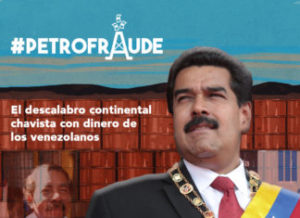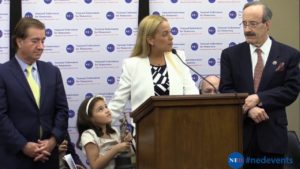US sanctions on Venezuela’s national oil company have accelerated the unprecedented collapse of its oil output and set off a domino effect in the global energy market, CNN reports:
Venezuela is in the throes of a massive humanitarian crisis. Millions of people are unable to get basic supplies, which has lead to starvation and illness.
The country’s oil industry, its main source of income, is in sharp decline. Venezuela’s oil production plummeted from 2.4 million barrels per day in 2015 to just 1.34 million at the end of 2018, according to research firm Rystad Energy.
Fresh sanctions are targeting five intelligence and security officials “aligned with illegitimate former President Nicolas Maduro, who continue to repress democracy and democratic actors in Venezuela,” a US Treasury Department statement read, AFP reports:
Among the five men is Manuel Quevedo, described by the Treasury as the “illegitimate” president of Venezuela’s state-owned oil firm, PDVSA. ..Also included is Ivan Rafael Hernandez, commander of Maduro’s presidential guard and head of the military counter-intelligence service, which the Treasury said “is responsible for serious human rights abuses and the repression of civil society and the democratic opposition.”
Venezuela’s transition is already under way, opposition leader Juan Guaido told PBS NewsHour.
Venezuela decided for the transition in the majority and supported change. It’s undeniable, not just today with the mobilization in the streets, but also in 2015, four years ago, when we won the National Assembly, which set the stage for me to become president of the Assembly and, by constitution, become interim president.

Connectas
We have been clear in saying that all cards are on the table, the necessary pressure to achieve an end to the usurping, the transitional government and the free elections, with the best social cost as possible, so that it generates governance and stability to the country, and it lets us have elections as soon as possible.
Guaido has been recognized by 49 countries as the country’s legitimate leader, in accordance with the Venezuelan constitution, IRI adds.
“There is no way that these countries are going to go back on their promise to the Venezuelan people and re-recognize Maduro,” Senator Marco Rubio told IRI’s Daniel Twining. “The process that has begun is irreversible.”
 There have been numerous reports of human rights violations against protesters in early 2019, Amnesty adds, particularly in poor areas hardest hit by the crisis, and where pro- Maduro armed groups are concentrated. Venezuelan civil society organizations say 41 people have died in this year’s protests.
There have been numerous reports of human rights violations against protesters in early 2019, Amnesty adds, particularly in poor areas hardest hit by the crisis, and where pro- Maduro armed groups are concentrated. Venezuelan civil society organizations say 41 people have died in this year’s protests.
$60 billion … is the amount Venezuelan economist Ricardo Hausmann, who’s advising interim President Guaidó and the Lima Group, says the country will need from the International Monetary Fund (IMF) in order to rebuild in an eventual transition. $60 billion is also the amount of privately held bonds the Maduro government at one point hoped to renegotiate with bondholders and now is defaulting on, AS/COA reports.
Leopoldo López, a former mayor of a Caracas borough, helped engineer Guaidó’s meteoric rise – and still harbours ambitions to become Venezuela’s next president, according to the Guardian.
 “Leopoldo’s in contact with everyone, every day, constantly,” said López’s wife, Lilian Tintori [right, who received the National Endowment for Democracy‘s 2015 Democracy Award on his behalf]. “He’s been sewing together an opposition that’s totally united and strong and pushing in the same direction, which is what we are seeing now.”
“Leopoldo’s in contact with everyone, every day, constantly,” said López’s wife, Lilian Tintori [right, who received the National Endowment for Democracy‘s 2015 Democracy Award on his behalf]. “He’s been sewing together an opposition that’s totally united and strong and pushing in the same direction, which is what we are seeing now.”







